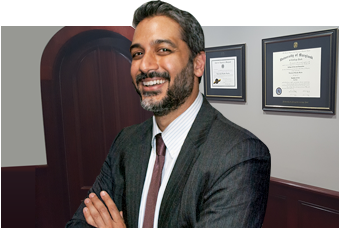Gag Orders – How Do They Work?

We hear about judges issuing gag orders in high-profile cases to restrict their speech, despite First Amendment guarantees of free speech in this country. Most recently, multiple judges associated with various civil and criminal cases related to former President Trump have issued gag orders against Mr. Trump and his attorneys. The Trump camp argues that such orders are unconstitutional. What gives?
Why are Gag Orders Issued?
Gag orders—sometimes called non-dissemination orders—are typically issued by judges to restrict individuals from discussing a case in public. These orders can apply to attorneys, plaintiffs, defendants, and witnesses. The goal is to protect the integrity of the court system as judges strive to keep potential jurists from hearing about the case outside of the courtroom. Even so, they’re extremely controversial because limiting speech is contrary to the First Amendment.
Are They Unconstitutional?
The American Civil Liberties Union (ACLU) has argued that gag orders are unconstitutional, usually because they are either unwarranted or because they are too vague for anyone to understand, let alone enforce. They’ve filed many briefs against such orders over the years, including on behalf of Mr. Trump, believing they unconstitutionally restrict free speech.
The Supreme Court has weighed in on the matter, declaring that the issuance of gag orders and the restriction of press coverage of any trial should be tolerated under the most serious of circumstances. Since they are such an extreme remedy to a problem facing the court, orders should be employed only as a last-ditch effort. Courts essentially must consider alternatives before issuing any gag orders, and have evidence that the legitimacy of a trial would be severely compromised otherwise.
Balancing the First and Sixth Amendment Requirements
Judges have many matters to consider when thinking about gag orders. The Sixth Amendment stipulates a speedy trial by an impartial jury is a key part of the justice system. The issuance of gag orders requires balancing this with the right of free speech. Thus, gag orders can be issued only after meeting very high standards, which is why proponents believe they are appropriate in specific situations, such as when public comments have a strong possibility of biasing a jury. That is when public comments run the risk of endangering the legal system at large. And because statements that are made outside of court are not bound by an oath to tell the truth, there is a greater likelihood of spin and fabrications influencing potential jurors. Additionally, when inflammatory statements are made that puts the lives of those associated with the case at risk, another concern rises: that jurors might be afraid to serve.
Rarely Used
Judges are concerned about media coverage that could impact the outcome of a case, which means these orders most often are issued only in high profile situations that are in the public eye. Gag orders can be limited— banning statements related to a specific person involved in the case—or quite broad, prohibiting all discourse about the case. They can be issued for a single individual, or for all those associated with the trial. Again, most people involved in a trial never have to worry about them—it’s the high profile cases that are susceptible to gag orders.
Are You Concerned About the Possibility of a Gag Order?
It’s likely that most defendants will never have to worry about a gag order. In cases that are very public and with high media coverage, the potential for such an order is greater. In any case, the La Plata & Waldorf criminal defense attorneys at The Law Office of Hammad S. Matin, P.A. will always fight for the best outcomes for you. To discuss your case, schedule a confidential consultation today.
Source:
aclu.org/press-releases/aclu-files-brief-arguing-trump-gag-order-violates-the-first-amendment

